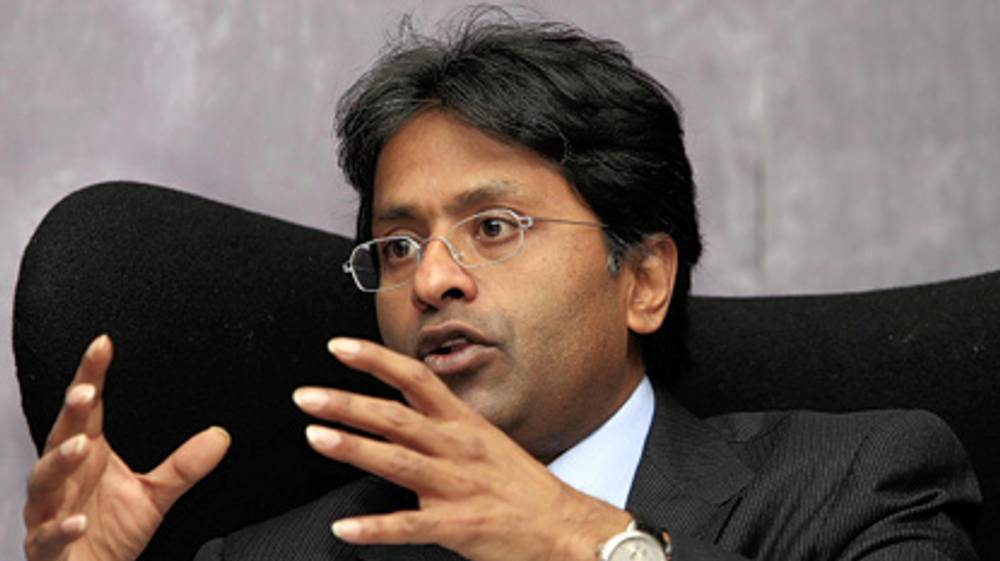New Delhi: The signing of the papers of the now-defunct Kochi Tuskers Kerala in 2010 was delayed till the very end by IPL founder Lalit Modi, revealed a new book, adding that he budged only after receiving a terse post-midnight call from the then BCCI chairman Shashank Manohar.
Several meetings were convened but each time Modi would ask for changes in the paperwork, or fly to Bengaluru for an IPL game, according to the book “Maverick Commissioner: The IPL-Lalit Modi Saga” written by author-journalist Boria Majumdar.
“The Kochi delegation, I was told, met Lalit at the Four Seasons Hotel in Mumbai, his base, on 10 April 2010 to get his signature on the franchise agreement,” writes Majumdar in a chapter, titled ‘The Institute Versus the Individual’.
“It was the nth meeting in a week and each time he had asked them to change things, refusing to put pen on paper.
“… The BCCI lawyer was under specific instructions to get him to sign the franchise papers and close the chapter. But it was Lalit she was dealing with. Yet again he asked her to change a few things and only then would he comply.”
Kochi Tuskers Kerala was one of the two teams introduced in 2010. It featured in IPL for just one season, in 2011, and was terminated the following year after failing to pay its annual bank guarantee.
The several allegations against Modi, currently a fugitive living in exile in London, were corroborated by Manohar and the Kochi team co-owners.
“Yes, that’s what happened… I had asked the board’s legal counsel to get it signed and put an end to the matter. It was a simple thing. However, she called me back and said Lalit had asked her to make a change in the document and even before she could reach his hotel had left for Bengaluru (for an IPL game),” Manohar said in the book.
“I asked her to instruct the Kochi representatives to travel to Bengaluru and get it done. We had had enough, and this was starting to get a little frustrating.”
Following the 2010 edition of IPL, Modi was suspended from BCCI after being accused of misconduct, indiscipline and financial irregularities. He was later banned by the BCCI for life in 2013 after a committee found him guilty of the said charges.
According to one of the Kochi team co-owners, Modi had driven them to “madness”.
“Without his signature things wouldn’t move and our best option was to chase him down and somehow get it done,” said one of the owners in the book on the condition of anonymity.
However, even tracking Modi down in Bengaluru didn’t quite work out as the former IPL commissioner made them wait in the hotel till the IPL game was over and then returned around midnight only to let them know that he wants “further changes” in the document.
But this time the board, especially Manohar, have had enough of Modi’s delaying tactics, and made the same clear to him when he ordered Modi to sign the papers that very night only.
“I had stayed awake for I knew there could be trouble. Lalit wasn’t easy to deal with and this was expected. That’s when I decided to act decisively,” Manohar said.
“I called Lalit and I told him he had to sign the document that night itself, failing which I would overrule him and request the Secretary N. Srinivasan to sign the document the next morning.
“According to the board’s constitution, the Secretary has all the powers to do so and at the end of the day, the IPL is just a sub-committee of the BCCI. We had given Lalit enough of a long rope. He was becoming an embarrassment and had to be stopped,” he stated.
Under pressure from the BCCI and seeing no other alternative in sight, Modi “finally signed the Kochi papers around 3 a.M. On 11 April”.
The same day Modi opened the pandora’s box with a barrage of tweets, revealing that the then Minister of State for External Affairs Shashi Tharoor’s friend, and later his wife, the late Sunanda Pushkar had equity stakes in Rendezvous Sports World, one of the co-owners of the terminated Kochi team.
The controversy eventually resulted in Modi’s exit from the BCCI and Tharoor’s resignation as a minister in the central government.
Published by Simon & Schuster India, the 240-page book is currently available for sale across offline and online stores.
PTI
